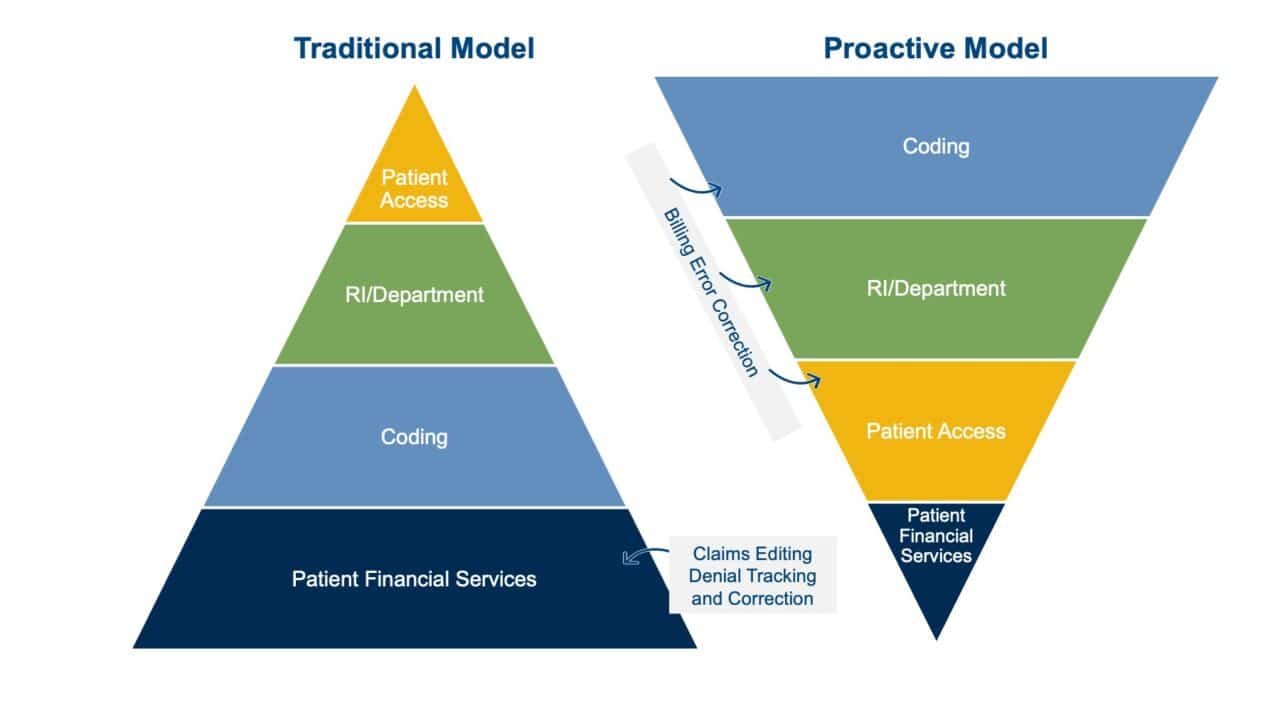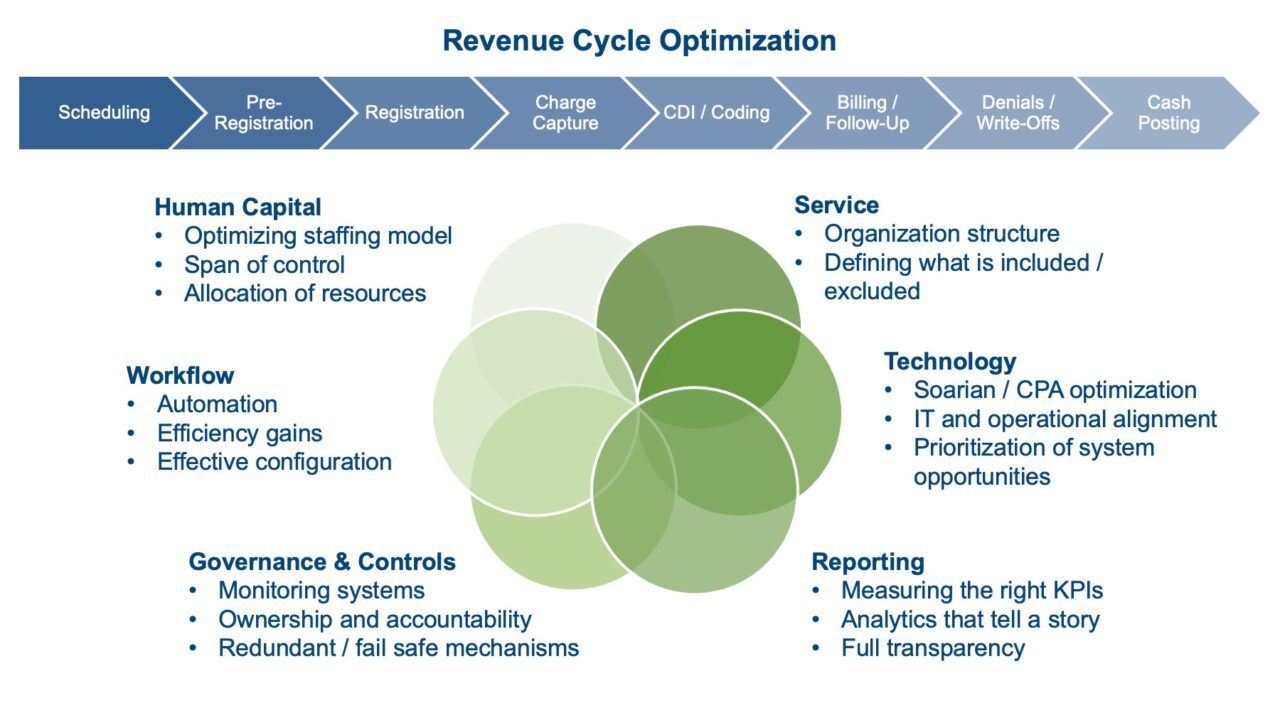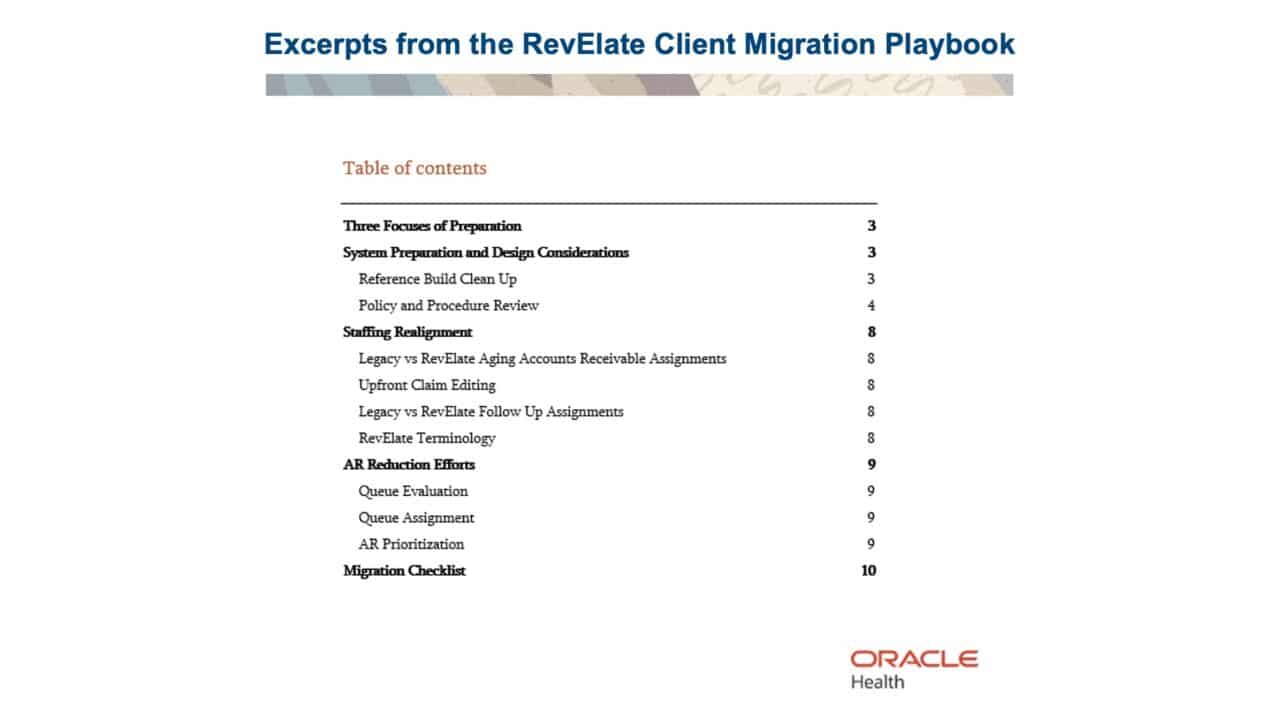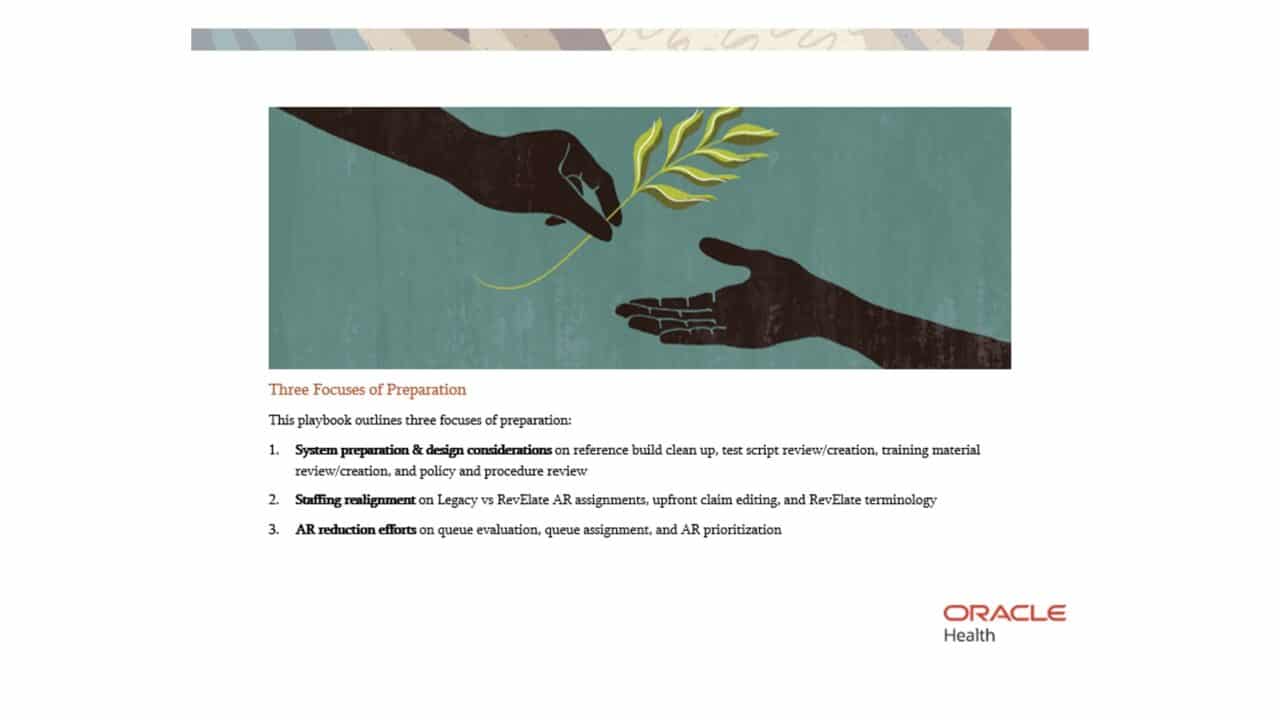Migrating to RevElate, Oracle Health’s go-forward patient accounting product, represents a tremendous opportunity for Patient Accounting clients to transform their revenue cycle. The right preparation is critical for success given the financial burdens many hospitals and health systems are struggling with. In this article, we outline steps organizations can take now, regardless of when they plan to migrate.
RevElate Is Coming and Promises Improved Efficiency, Interoperability, & Scalability
As the press release from Oracle Health notes, RevElate was designed to “preserve and advance the clinically driven capabilities of Cerner Millennium® while adding scalable, enterprise capabilities of Soarian® Patient Accounting software.” RevElate will offer open API support and workflow automation (including automation for third-party workflows), allowing for improved interoperability and better scalability. Overall, RevElate will enable clients to work more efficiently and with fewer manual touches.
At many health delivery organizations, the traditional revenue cycle model is inefficient and largely reactive, with claims editing, denial management, and billing corrections frequently falling to Patient Financial Services. Through its new capabilities and improved workflow automation, RevElate allows hospitals and health systems to adopt a more proactive revenue cycle model, with billing error corrections being handled in real-time, before the claim is even generated.

Making the Most of the Opportunity
The launch of RevElate represents a tremendous opportunity for Patient Accounting clients to migrate to a more advanced patient accounting system that can help transform their revenue cycle. However, in the current environment – with most hospitals struggling to maintain a healthy margin and amid continued turnover among revenue cycle staff – there is little room for error. Hospitals and health systems need to make the most of this opportunity and maximize the ROI from moving to the new system.
There are three ways your organization should be preparing for RevElate now, regardless of when you are scheduled to migrate.
1. Perform optimization before beginning your RevElate migration.
Virtually every health delivery organization knows they have opportunities to better optimize their patient accounting environment – whether through system cleanup, process redesign, and/or staffing reorganization. The time to make those changes is now – before migrating to RevElate.
RevElate is a more advanced patient accounting product with new capabilities, but clients need to be positioned to make use of the new capabilities. Oracle Health is essentially taking what is built in a client’s Patient Accounting system at the time of migration and moving it to RevElate (like for like). As a result, if a hospital or health system does not perform the right optimization before beginning the migration, the same inefficiencies, data issues, and suboptimal workflows causing problems today will carry over to the new system. Doing the work ahead of time helps ensure the best possible ROI from the start – and the sooner you begin the migration, the sooner your organization can realize the benefits.
Service, human capital, technology, reporting, workflow, and governance are all important components of a revenue cycle optimization.

Examples of key optimization efforts prior to migrating to RevElate include:
- Technology: Master files, CDM, claim rules, etc.
- Workflow: Denial management, work queue evaluation, assignments, and AR prioritization.
- Human Capital: Ensuring the organization is appropriately staffed for the coming revenue cycle transformation shift with RevElate (e.g., coding, revenue integrity, billing, and follow-up).
2. Ensure all tasks outlined in the RevElate Client Migration Playbook can be carried out effectively.
Moving to any new enterprise system is a significant – and inherently disruptive – effort that requires dedicated time and skilled resources. The migration to RevElate is no different. In fact, there are several activities that Patient Accounting clients need to complete in order to prepare. Oracle Health developed a playbook designed to “provide guidance around system preparation, staffing realignment, and AR reduction efforts to help better prepare clients for RevElate.” The playbook serves as a guide to ensure clients have met Oracle Health’s recommendations prior to beginning the RevElate migration.


The right staffing is critical. Patient Accounting clients need to ensure they have the time, resources, and internal expertise to successfully address all the recommended playbook tasks. For example, “Training Material Review & Creation” includes not only identifying and updating the training materials, but also accounting for the time, resources, and expertise to conduct the training. The same is true for carrying out the testing associated with the “Test Script Review & Creation” task.
3. Lay the foundation to measure your success.
Securing the best possible ROI from RevElate requires measuring success. The potential benefits realization needs to be identified well before the migration kicks off. Best practice workflow, system design, and staffing will help provide the foundation needed to take full advantage of RevElate’s capabilities.

The Bottom Line
Migrating to RevElate represents a significant opportunity for Patient Accounting clients to transform their revenue cycle. To benefit from workflow efficiencies and maximize the ROI associated with moving to a new system, clients should act now.
How Impact Advisors Can Help You
Impact Advisors is a trusted Oracle Health partner, delivering over 20 years of experience working with leading health systems and academic medical centers utilizing Cerner solutions. We can guide you along your RevElate migration journey. By optimizing your current Patient Accounting system prior to your RevElate migration, we can help your organization drive additional margin, run down your Accounts Receivable (AR), and put your organization in the best position to ensure a smooth transition.


